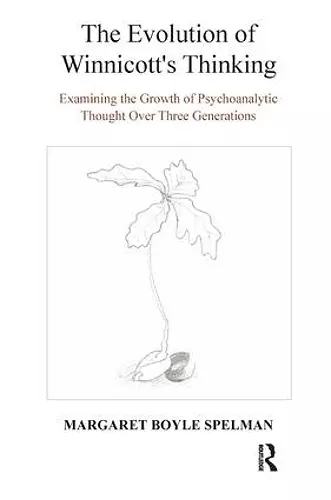The Evolution of Winnicott's Thinking
Examining the Growth of Psychoanalytic Thought Over Three Generations
Format:Paperback
Publisher:Taylor & Francis Ltd
Published:31st Oct '13
Currently unavailable, and unfortunately no date known when it will be back
This paperback is available in another edition too:
- Hardback£125.00(9780367327835)

This insightful examination of D. W. Winnicott's work reveals his influence across generations, emphasizing his unique approach to independence in thought and teaching.
In The Evolution of Winnicott's Thinking, the author delves into the intricate nature of D. W. Winnicott's thought and its far-reaching influence. The narrative begins by tracing the development of Winnicott's ideas throughout his lifetime, highlighting the first generation of thinkers who were directly impacted by his work. This exploration sets the stage for a deeper understanding of how his concepts have permeated various fields, including psychoanalysis and human development.
The book goes beyond a mere historical account by examining the ripple effect of Winnicott's ideas on his analysands and their subsequent followers. This second and third generation of thinkers, influenced by Winnicott's independence of thought, showcases how his refusal to cultivate a discipleship has paradoxically led to a broader dissemination of his principles. The author raises thought-provoking questions about the implications of such independence in the evolution of psychological theories.
Ultimately, The Evolution of Winnicott's Thinking seeks to answer the question of what happens to the ideas of a thinker who chooses not to establish a formal following. By analyzing the legacy of Winnicott's work through multiple generations, the book offers valuable insights into the ongoing relevance of his contributions to contemporary psychology and psychoanalysis.
'This book is truly exceptional in many respects. It offers an original diachronic and panoramic analysis of the development of Winnicott's ideas. In effect, it lays the foundations for the construction of nothing less than a genealogy of the Winnicottean opus. This represents a daring undertaking and a most innovative approach in presenting the three-dimensionality of Winnicott's contribution. It succeeds in providing an in-depth, authoritative and scholarly study that, written in an accessible language, enhances considerably our understanding of Winnicott's presence in the psychoanalytic project. I have no doubt that soon the book will establish itself as a standard text, indeed, a classic, and it will become indispensable in any serious endeavour to grasp not only Winnicott's work and its legacy but also the intertwining routes that psychoanalytic theory and practice follow in their development.'- Renos K Papadopoulos PhD, Professor at the Centre of Psychoanalytic Studies, University of Essex.
ISBN: 9781782200789
Dimensions: unknown
Weight: unknown
368 pages